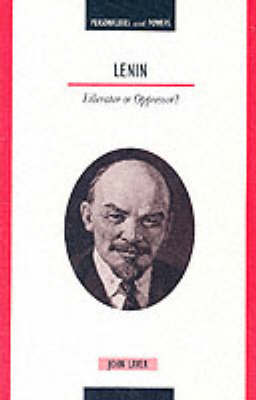Personalities & Powers S.
3 total works
This analytical rather than chronological account of the political career of Joseph Stalin, leader of the USSR from the mid-1920s to his death in 1952, gives an account of his rise to power, and his responsibility for such events as the purges and show trials of the 1930s, collectivization of agriculture and the various five year plans for the industrializtion of the USSR. The book analyzes the concept of Stalinism, what it meant during Stalin's lifetime, and afterwards, during the regimes of Kruschev, Brezhnev and Gorbachev. Most of the chapters have a timeline relating to major events in the chapter. "Points to consider" allow revision of essay titles to encourage students to reflect on material in the chapters. There is also discussion of the work and arguments of historians of Stalin and Stalinism, in the West and in the USSR. John Laver is the author of books in the "History at Source" series, including "Russia 1914-41", "The USSR 1945-90", "Nazi Germany 1933-45" and "Imperial and Wiemar Germany 1890-1933".
This account looks at the development of Lenin's ideas and political philosophy, and his part in the events of 1917 and the post-revolutionary chaos of civil war. Juxtaposing Lenin's life and career with the turbulent events which led to the establishment of the Soviet Union, the book focuses on the extent to which Lenin actually led or influenced events and the way he adapted ideas to the situation around him. As well as examining Lenin the thinker, revolutionary, politician and leader, this book reviews the changing interpretations of his life and work amongst both Soviet and Western historians.
This title is part of the series of thematic biographies of major figures in British and European history which presents a questioning aproach to the issues raised by its subject's life, work and achievements. The series is designed to enable A Level and Higher Grade students to study and analyze the role of the individual in history. This book examines Hitler's impact upon German and European history, with a consideration of some of the main issues which have concerned historians of the Third Reich. There is particular attention to the motivation of Hitler throughout his life and career, and a study of both his own infatuation with power and the degree to which he exercised a hold over the German people. His place in German history is assessed and the historiography of Hitler is reviewed.

